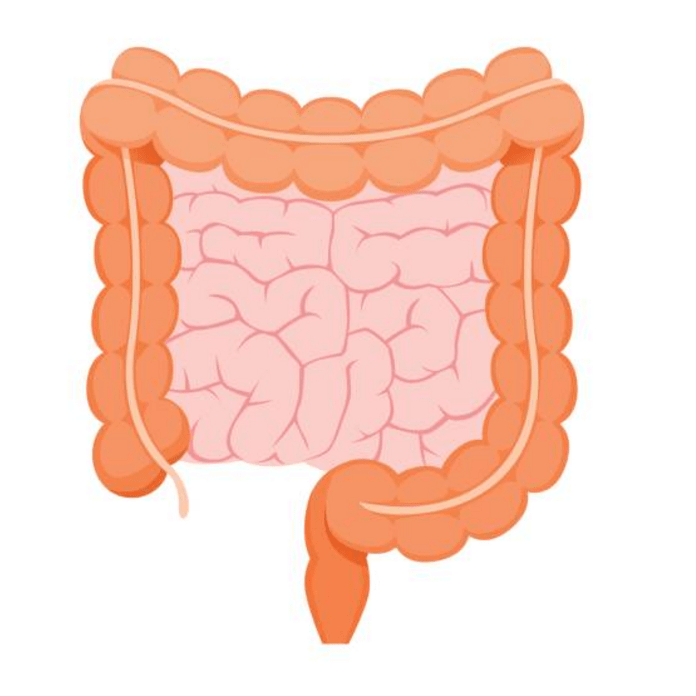General Information
The incidence of colorectal cancer (CRC) in Australia are amongst the highest recorded worldwide2. In both men and women, CRC it is the third most commonly diagnosed type of cancer in Australia and the second leading cause of cancer deaths1. In NSW, approximately 1 in 13 people will be diagnosed with CRC in their lifetime [2], most commonly in individuals 50 years of age or older2.
The good news is that CRC is preventable and, if found in the early stages, can be successfully treated in more than 90% of cases2.
Symptoms
The most commonly associated symptoms are rectal bleeding, abdominal pain, weight loss and changes in bowel habits. However, one cannot rely on these symptoms as a means of diagnosing CRC as they are also indicative of several other conditions. In addition, many polyps and early cancers do not show symptoms at all, so waiting for symptoms to develop before being investigated may mean a late diagnosis of CRC and a poor prognosis.
Causes
Colorectal cancer usually develops from benign polyps which grow on the bowel wall. These polyps may over time, if left, increase in size and become cancerous. You may be more prone to development of polyps if you are older than 50, have an unbalanced diet, if you smoke, consume excessive alcohol, engage in minimal exercise or are obese1.
Some people with family history of CRC and / or polyps, or a personal history of Inflammatory Bowel Diseases (IBD) (Crohn’s Disease and Ulcerative Colitis), colonic polyps, and other types of cancer are at even higher risk.
Necessary Investigations
Early detection and treatment is vital. The Australia Government runs a program called the National Bowel Cancer Screening Program (NBCSP) which offers free biennial screening (using a test called the Faecal Occult Blood Test) for Australians aged between 50 and 74. This program aims to detect early signs of CRC by checking for blood in the stool. Although blood can be found in the stool with many conditions including IBD and haemorrhoids, if blood is present it warrants further investigation as CRC must be excluded.
It is important to realise that many polyps and early cancers do not show symptoms at all, so the Faecal Occult Blood Test may yield a negative result even if CRC is present. This means that if you are in a higher risk group or have any red flag signs or symptoms, further investigations may be warranted.
One of the most thorough and best screening methods in use today is called Colonoscopy. This procedure, which is offered at the Centre for Digestive Diseases, enables the gastroenterologist to visualise the large intestine, determine the presence of polyps and/or other abnormalities, and if necessary, remove them to be sent for histopathological testing. For more information on Colonoscopy please see https://centrefordigestivediseases.com/for-patients/treatments/colonoscopy/.
Contact Details
If you are 50 years of age or older, have a family or personal history of cancer or polyps, have had a positive faecal occult blood test or have symptoms as described above, please speak to your local doctor to obtain a referral to CDD for colon cancer screening. If you already have a referral from your GP, please follow this link for instructions on how to become a patient at the Centre for Digestive Diseases: https://centrefordigestivediseases.com/how-to-become-a-patient/.
References and Further Reading
1Cancer Australia. (2020) Bowel Cancer (Colon Cancer) in Australian Statistics. Published Online. Updated October, 2020. Page accessed 15/12/20. Link to page: https://www.canceraustralia.gov.au/affected-cancer/cancer-types/bowel-cancer/bowel-cancer-colorectal-cancer-australia-statistics
2Cancer Institute NSW, NSW Governement Web Page. Page accessed 15/12/20. Link to page: https://www.cancer.nsw.gov.au/what-we-do/nsw-cancer-plan/focus-areas/bowel-cancer
Centre for Epidemiology and Research. (2010). The Health of the People of New South Wales: Report of the Chief Health Officer 2010. NSW Government, NSW Health: 1-141. Site Accessed 15/12/20.
Link to Publication: https://www.health.nsw.gov.au/hsnsw/Publications/chief-health-officers-report-2010.pdf

